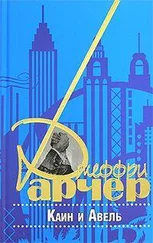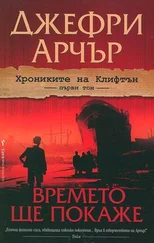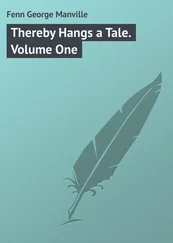Six months after his retirement, the name of Percival Arthur Clarence Forsdyke appeared on the New Year’s Honours List. Percy had been awarded the CBE for services to the Foreign and Commonwealth Office.
He read the citation without any satisfaction. In fact, he felt he was a failure and had let the family down. After all, his grandfather had been a peer of the realm, his father a Knight Commander of St Michael and St George, whereas he ended up a mere Commander of a lower order.
However, Percy had a plan to rectify the situation, and to rectify it quickly.
Once he had left the FCO, Percy did not head straight for the British Library to begin work on his memoirs, as he felt he had achieved nothing worthy of historic record, nor did he retire to his country home to tend his roses, possibly because he didn’t have a country home, or any roses. However, he did heed the Foreign Secretary’s words, and decided to make use of his unrivalled encyclopaedic memory.
Deep in the recesses of his remarkable mind, Percy recalled an ancient British law which had been passed by an Act of Parliament in 1762, during the reign of King George III. It took Percy some considerable time to double-check, in fact, triple-check, that the Act had not been repealed at any time in the past two hundred years. He was delighted to discover that, far from being repealed, it had been enshrined in the Treaty of Versailles in 1919, and again in the Charter of the United Nations in 1945. Clearly neither organization had someone of Percy’s calibre tucked away in its basement. Having read the Act several times, Percy decided to visit the Royal Geographical Society on Kensington Gore, where he spent hours poring over charts that detailed the coastal waters surrounding the British Isles.
After completing his research at the RGS, Percy was satisfied that everything was in place for him to comply with clause 7, addendum 3, of the Territories Settlement Act of 1762.
He returned to his home in Pimlico and locked himself away in his study for three weeks — with only Horatio, his three-legged, one-eyed cat, for company — while he put the final touches to a detailed memorandum that would reveal the real significance of the Territories Settlement Act of 1762, and its relevance for Great Britain in the year 2009.
Once he’d completed his task, he placed the nineteen-page handwritten document, along with a copy of the 1762 Act showing one particular clause highlighted, in a large white envelope which he addressed to Sir Nigel Henderson KCMG, Permanent Secretary to the Foreign and Commonwealth Office, King Charles Street, Whitehall, London SW1A 2AH. He then put the unsealed envelope in the top drawer of his desk, where it would remain for the next three months while he disappeared off the face of the earth. Horatio purred.
On 22 June 2009, Percy took a taxi to Euston station, where he boarded the overnight sleeper for Inverness. His luggage consisted of an overnight bag and his old school trunk, while inside his jacket pocket was a wallet containing two thousand pounds in cash.
On arrival in Inverness, Percy changed platforms and, an hour later, boarded a train that would take him even further north. The five-carriage shuttle stopped at every station on its long and relentless journey up the north-east coast of Scotland, until it finally came to a halt at the remote harbour town of Wick.
When Percy left the station, he commandeered the only taxi, which took him to the only hotel, where he booked into the only available room. After a one-course meal — the menu being fairly limited, and the kitchen staff having all left at nine o’clock — Percy retired to his room and read Robinson Crusoe before falling asleep.
The following morning he rose before the sun, as do most of the natives of the outer reaches of Scotland. He feasted on a large bowl of porridge oats and a pair of kippers that would have graced the Savoy, but rejected an offer of the Scotsman in favour of studying a long list of the items that would have to be acquired before the sun had set that afternoon.
Percy spent the first hour after breakfast walking up and down the high street, trying to identify the shops he would have to patronize if his trunk was to be filled by the time he left the following morning.
The first establishment he entered was MacPherson’s Camping Store. ‘Everything a hiker needs when trekking in the Highlands’ was stencilled boldly on the window. After much bending over, lying down and crawling in and out, Percy purchased an easy-to-erect, all-weather tent that the proprietor assured him would still be standing after a desert storm or a mountain gale.
By the time Percy had left the store he had filled four large brown carrier bags with his tent, a primus stove, a kettle, a goose-down sleeping bag with an inflatable pillow, a Swiss army knife (he had checked that it had a tin opener), a pair of Wellington boots, a fishing rod, a camera, a compass and a portable telescope.
Mr MacPherson directed Percy towards the MacPherson General Store on the other side of the road, assuring him that his brother Sandy would be happy to fulfil any other requirements he might still have.
The second Mr MacPherson supplied Percy with a shovel, a plastic mug, plate, knife, fork and spoon, a dozen boxes of matches (Swan Vesta), a Roberts radio, three dozen Eveready batteries, four dozen candles and a first-aid kit, which filled three more carrier bags. Once Percy had established that there wasn’t a third MacPherson brother to assist him, he settled for Menzies, where he was able to place several more ticks against items on his long list — a copy of the Radio Times , the Complete Works of Shakespeare (paperback), a day-to-day 2009 diary (half price) and an Ordnance Survey map showing the outlying islands in the North Sea.
Percy took a taxi back to his hotel, accompanied by nine carrier bags, which he dragged in relays up to his room on the second floor. After a light lunch of fish pie and peas, he set off once again for the high street.
He spent most of the afternoon pushing a trolley up and down the aisles of the local supermarket, stocking up with enough provisions to ensure he could survive for ninety days. Once he was back in his hotel room, he sat on the end of the bed and checked his list once again. He still required one essential item; in fact, he couldn’t leave Wick without it.
Although Percy had failed to find what he wanted in any of the shops in town, he had spotted a perfect second-hand example on the roof of the hotel. He approached the proprietor, who was surprised by the guest’s request but, noticing his desperation, drove a hard bargain, insisting on seventy pounds for the family heirloom.
‘But it’s old, battered and torn,’ said Percy.
‘If it’s nae guid enough fur ye, sur,’ said the owner loftily, ‘ah feel sure y’ll bi able tae find a superior wan in Inverness.’ Percy gave in, having discovered the true meaning of the word canny , and handed over seven ten-pound notes. The proprietor promised that he would have it taken down from the roof before Percy left the following morning.
After such an exhausting day, Percy felt he had earned a rest, but he still had one more task to fulfil before he could retire to bed.
At supper in the three-table dining room, the head waiter (the only waiter) told Percy the name of the man who could solve his final problem, and exactly where he would be located at that time of night. After cleaning his teeth (he always cleaned his teeth after a meal), Percy made his way down to the harbour in search of the Fisherman’s Arms. He tapped his jacket pocket to check he hadn’t forgotten his wallet and the all-important map.
When Percy entered the pub he received some curious stares from the locals, who didn’t approve of stray Englishmen invading their territory. He spotted the man he was looking for seated in a far corner, playing dominoes with three younger men, and made his way slowly across the room, every eye following him, until he came to a halt in front of a squat, bearded man dressed in a thick blue sweater and salt-encrusted jeans.
Читать дальше




![Джеффри Арчер - The Short, the Long and the Tall [С иллюстрациями]](/books/388600/dzheffri-archer-the-short-the-long-and-the-tall-s-thumb.webp)







